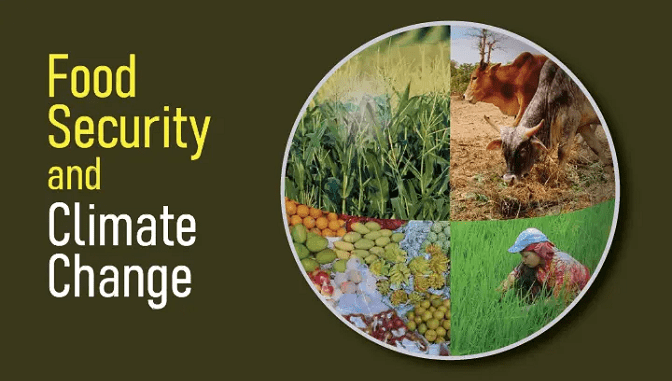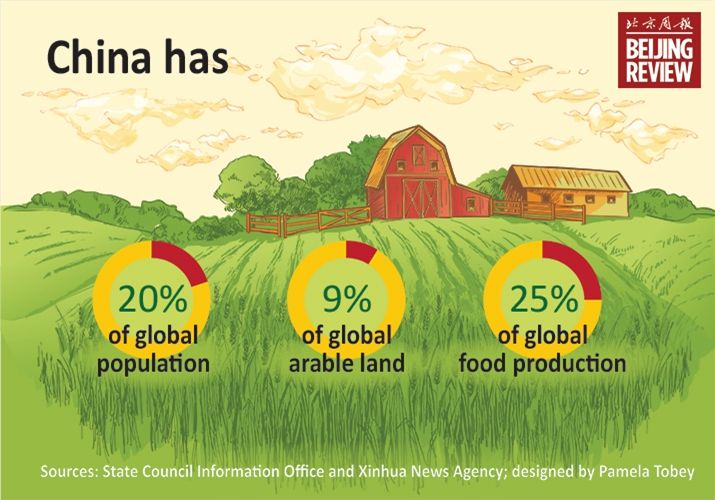
As the global climate changes, extreme climate events, such as heatwaves, droughts, and flooding, are becoming more commonplace. Like many countries, China has suffered from extreme climatic events in recent years and climatic extremes combined with EI Niño effects have exposed vulnerabilities in its agricultural landscape.
Climate change poses a great challenge to global food security and the current changes in global food insecurity can be plausibly attributed to its impact, according to scientists. Numerous studies have discussed the impact of climate change on various aspects of food security, including the quality of agricultural products and the impact on prices, as well as the impact on agricultural production environments such as farmland, agricultural water use, and agricultural ecosystems. In fact, the global food security situation is currently facing unprecedented challenges, with nations experiencing an increase in systemic food security risks.

As the world’s largest producer and consumer of food, China supports nearly 20% of the global population with only 9% of the world’s cultivated land and 6% of its freshwater resources. Food security has always been seen as China’s most important issue related to people’s livelihoods, as well as a crucial foundation for economic development, social stability, and national security.
However, with rising temperatures, frequent extreme weather events, and changes in precipitation patterns, China’s food production and supply chain are facing increasingly severe threats due to climate change, bringing more uncertainty. The Chinese government has implemented comprehensive strategies to ensure the stability and continuous improvement of food security through technological advancement, land protection, subsidies, food reserves, market regulation, agricultural insurance, and international cooperation.
Climate in China typically varies significantly across regions due to its vast land area and diverse climate. Therefore, recent Chinese research emphasizes that understanding the multi-dimensional impacts of climate change on China’s food security is crucial.
Other recent research by Chinese scientists suggests that the impacts of increasing drought and flood severity and duration on areas of major agricultural production in China are much less appreciated than the immediate and dramatic effects of the extreme weather events themselves. These events, the scientists conclude, have the potential to affect food security with devastating impacts on crop seeding, plant growth, and harvest yields.
The two recent Chinese research reports listed below provide detailed analysis and insight into the relationship between climate change, and China’s policy response to the challenge to food security.
- Cell Reports Sustainability, ‘Food security in climatic extremes: Challenges and opportunities for China’, Volume 1, Issue 2, Feb 23, 2024. https://www.sciencedirect.com/science/article/pii/S2949790623000137
- Sustainability, ‘Multi-Dimensional Impacts of Climate Change on China’s Food Security during 2002–2021’. March 26, 2024. Volume 16, Issue 7. https://www.mdpi.com/2071-1050/16/7/2744#